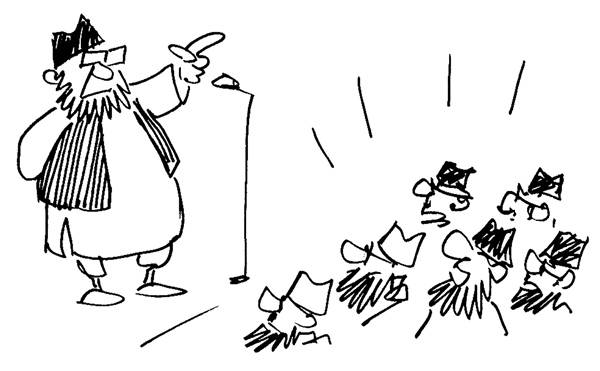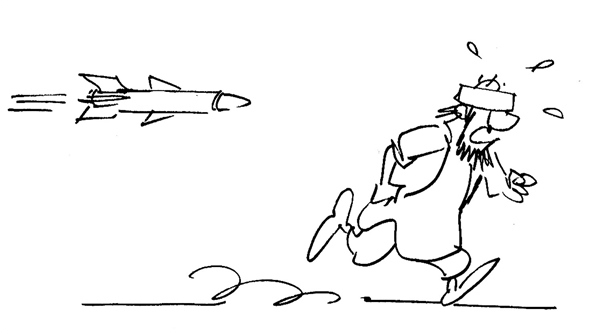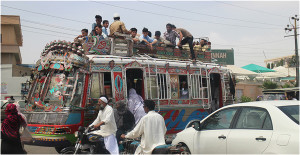
Demanding answers
Sir,
Human rights defenders, peace activists, citizens, civil society organizations, networks, alliances, platforms and groups countrywide are outraged at the events unfolding on Sunday simultaneously in Lahore and Islamabad, and the Islamabad dharna.
We stand in solidarity with all our bereaved, grieving compatriots, especially the Christian Pakistanis, who were celebrating Easter Sunday, and other families enjoying a weekend outing at Gulshan-e-Iqbal park (Lahore), when the JuA (a breakaway faction of TTP) struck with vicious intent, meticulous planning and organization.
It is no coincidence that militant terrorists carried out a suicide mission in Lahore at precisely the same time as militant religio-political extremists were rampaging down Islamabad’s most sensitive, most protected, most “secure” Red Zone, threatening the very foundations of the State. They are still encamped there, making outrageous, blatant demands, taking full advantage of the government’s familiar appeasement policy, strategy and tactics.
Civil society has been and remains inherently peaceful, both in our philosophy and our modus operandi – unlike terrorists and militant extremists. Today, in the name of “security”, civil society and organizations are harassed, whilst militant groups – openly and violently anti-state, anti-democracy, anti-Constitution and anti-humanity – are permitted to operate with impunity.
Instead of simply expressing our outrage, shock, grief and solidarity with the victims, the injured and the survivors – which we do most sincerely – we now wish to go a step further, regarding the Lahore carnage and the mullahs’ dharna in Islamabad.
Since our longstanding demands (e.g. inter alia: removal of hate speech and jihadism from public school curricula and textbooks, registration and screening of all madrassas, arrest of hate preachers, a ban on such individuals and their organizations from all media, ban on private militias and weapons) for dealing with extremism, terrorism, sectarianism and jihadism have not been met, we now demand answers from the so-called “government in power” (sic) to our legitimate questions:
Where does the post-APS/Peshawar National Action Plan (NAP) stand today?
Where is the NACTA?
Where is the NISP?
Where is the government’s post-APS, post-Baacha Khan University resolve to stamp out extremism across the board, while we witness the Taliban and Daaish making inroads?
Where is the action against hate speech and instigation to violence found in school curricula, madrassas, mosques, sectarian literature and tableeghi/jihadi materials?
Where is the January 2015 promise to carry out even-handed operations in all provinces/areas, including all regions of Punjab – the hotbed of extremist exports?
Where is the media’s self-regulation on these issues? And PEMRA’s monitoring role?
Why has there been such a colossal failure of intelligence gathering, sharing and coordination?
Why is the Army making crucial decisions of National Policy and initiating action too?
Where is the elected “Government”? What is it doing? Why is there no one taking responsibility in a transparent move towards accountability and answerability?
We demand answers to these and many other burning questions of loyal, committed but grieving and suffering Pakistanis, who are fed up of being fed lies and platitudes. It is high time to stop the appeasement policy and finally put one’s money and resources where one’s mouth is.
Civil Society Organisations.

America’s war of ideas
Sir,
America has an overwhelming presence in the international system, and is a state responsible for global peace and security, a state known to be a prospered democracy and a state recognized as a super power, but when a Muslim is asked about how he sees America’s role in the world the answer is not very positive. After the Great War, during the era of the cold war, America had managed to build cordial relations in the Muslim world. There existed a comparative harmony between the west and the east, it was mostly because American public diplomacy was effectively fashioning the public opinion.
Post 9/11, the American policy of non-intervention shifted to the policy of intervention and the American public relation activities got stalled. At the same time, the Bush administration waged its war against terrorism and steered the operation Iraqi Freedom and operation Enduring Freedom.
When the Bush administration launched the war against terrorism, a lead instrument in the battle of hearts and minds was public diplomacy, but it was second to the military offensive. Though the concept of public diplomacy that prevailed was explained by Lee Hamilton, co-chair of the influential 9/11 Commission, “Public diplomacy is how we stop them from coming here to kill us.”
Despite the efforts made by the Bush administration, American public diplomacy failed to communicate with the Muslim world. These failures were the lessons for the current Obama regime, it is said that Obama’s administration was a game changer in the Muslim world. In his inaugural address, he spoke openly to the Muslim world, stating “mutual interest and mutual respect”.
The American media continues stereotyping Muslims in their dramas, movies and more recently election camping. This is where American public diplomacy fails again.
Somehow if we compare the previous Bush regime and the current Obama regime, the latter has been successful in maintaining peaceful relations. Muslims had started to have some faith in American policies, Obama’s constant support towards the Arab world, interest in Pakistan and declaring terrorist with no religion were some of the step towards the new beginnings. But the recent election camping’s done by Donald Trump are weakening the trust that was built.
America is said to be a great nation, but the battle of strength cannot be won without the battle of ideas and this is where Americans lack efficiency. Terrorism is not supported by any religion or state, and America needs to recognise this. America needs to fight terrorism, not the states that are victims to the menace.
Nida Khan,
Lahore.
Youth as survivors of a nation
Sir,
‘Youth’ – the most enthusiastic and influential creature found on our planet. I am sure the topic I selected is very common and we all know the importance of youth in the development of any country. But still whenever I walk into my dad’s room I am tired of listening to talk shows with people shouting at each other in order to discuss a problem, with everyone claiming to be the most patriotic person present in the room. Youth is the only group that has the courage to stop wrongdoings rather than commenting on those problems. Here I want to discuss only one idea of this diversified topic; the youth as a survivor of nation in politics. Our country is a nation of talented individuals. But due to the socio economic conditions in Pakistan, our youth resists entering politics. Politics is considered as a nightmare for our youth. Everyone wants a change but no one dares to take the first step towards that.
Iram Azam,
Karachi.

Lahore carnage
Sir,
It is painful to say that at least 70 people, including women and children, were killed and more than 300 wounded when a suicide bomber blew himself at the Gulshan-e-Iqbal park in Lahore. Of them, a majority were children and the death toll could increase, as 56 children are in critical conditions. It was Easter and children were playing and enjoying, not knowing whether they might be killed. The incident has raised serious questions over security measures in the wake of the prevalent terror threat. No immediate facilities were provided there, after the attack, injured people cried for help and mothers were looking for their children. Terrorists are uprooting our way of living day by day. Still the government is silent and not showing any mercy, and it seems that our leaders do not care about the deaths of small children and women.
Sana Khan,
Kech.
Eradicating terrorism and NAP
Sir,
Yet another dastardly attack by terrorists has taken lives of over 72 citizens of Pakistan in Lahore. There will usual rhetoric and condemnations, with promises of stern action, which will never be carried out. We are reaping the harvest of our own follies when Zia’s unconstitutional rule gave sanctuary to criminals and foreign mercenaries to fight proxy wars. The factories which were funded by foreigners have now become a booming criminal business. One wonders whether it is nexus between law enforcement and criminals which prevent installation of CCTV monitoring of public places in Karachi, Lahore, Peshawar etc and entry points at border crossings, airports and check posts in this country?. This would have cost a fraction of money spent on mega projects worth several hundreds of billions.
Even if all the army is utilized to fight terrorism, other than killing hundreds of recruits nothing else will be achieved. The factories that breed, nurture and produce terrorists, whether funded by foreigners or through local support, will continue to produce more terrorists to replace those killed. As long as Pakistan Federal Government and all Provincial Governments abdicate their constitutional obligation to invest in education, and outsource it to private sector, hundreds of thousands of poor will be forced to send their children to unregulated Madrassas, who exploit religion to brainwash and unleash them on this country.
Till late 70s state subsidized schools existed and they produced men like Dr Abdus Salam. Today education and health have become a business which in presence of corrupt bureaucracy, are totally unregulated, charging exorbitant fees. While population has been increasing our tax revenue collection has decreased, because political elite and corrupt bureaucracy within FBR facilitate tax evasion. In this crime against State, both political elite and civil bureaucracy are party.
Ali Malik,
Lahore.

Issues of traffic and public safety
Sir,
When state-funded institutions get involved in commercial profiteering ventures, then their primary task is compromised. Our cities and towns have become more insecure today because institutions created for security are involved in commercial ventures, with bureaucrats and elected governments failing to perform their role.
There is a conflict of interest involved when such organizations and public officeholders at the helm, whose salaries are paid by taxpayers, get involved in commercial ventures, with huge profits, blinding them to the risks they take. Pakistan, its cities and citizens are more insecure than they were three decades back. Land developers and housing schemes have played havoc with the lives of citizens. Can any sane person justify commercial eateries and tea stalls near Wagah Border crossing, which were used by terrorists?
A traffic safety advertisement in UK emphasizes, “A TWO SECOND GLANCE, DOUBLES RISK OF CRASHING.” In major cities of Pakistan, traffic police rightly impose fines on drivers of vehicles using cell phones, because this diverts their attention, but strangely ignore the same abuse by motorcyclists. On almost every major crossing in Karachi and Lahore DHA and Cantonment areas, there are huge video screens installed which display colorful advertisements, with beautiful models dancing, that catch the attention of drivers and pedestrians alike, much more than a cellphone. Public and traffic safety requirements have been ignored by profits generated by renting out these billboards at almost every major busy four-way crossing in our cities, which has caused numerous accidents, fatalities and injuries. How can permission be given for petrol pumps and CNG stations right in the midst of residential area in DHA Lahore, with no safe free space separating houses from petrol stations? Sanity and public safety must prevail over profiteering and misplaced concept of welfare.
Malik Tariq Ali,
Lahore.
Quaid’s doctrine
Sir,
Pakistan’s unfortunate fate has been treachery hatched by a few conspiring minds to remove from its archives the 11 August 1947 address by Quaid-e-Azam to the Constituent Assembly at the time. Even after 68 years, there is a vested group that advocates that democracy is not suited to the intellect of the people, knowing full well that the objective of the struggle by the Quaid and Iqbal for the creation of Pakistan was self-rule as a modern democratic welfare state. What these people forget is that it was the masses and not the British-trained paid civil cum khaki bureaucracy, nor the feudal beneficiaries of the Raj the in form of the Unionist Party, which supported the demand for a separate state.
His views about the paid bureaucracy were elaborated when he reminded them of “constitutional and legal implications” of the oath binding them to be faithful to the constitution and “that executive authority flows from the head of the Government of Pakistan”, further elaborating that “any command or orders that may come to you cannot come without the sanction of the Executive Head. That is the legal position”.
While referring to the role of the bureaucracy and political opportunism of the Unionist Party, created by Raj to run an occupied country, the Quaid wanted Pakistan to eradicate in his words the “curse” of corruption, bribery and black marketing, which we inherited in 1947. The Raj corrupted them with dole-outs of state land to buy their loyalties.
Instead of adhering to the Quaid’s vision, we are a country where corruption has been institutionalised, the state having distanced itself from its primary obligations of welfare, education and health, and instead become hostage to the insatiable greed for state lands and perks by paid and elected public officeholders, a remnant of the colonial Raj.
Politics of principles and ethics followed by politicians of caliber and integrity like Jinnah and Iqbal was reduced to politics of opportunism, where men without integrity abused power to become traders, serving themselves, indulging in massive tax evasion and making a mockery of ethics like conflict of interest.
Bilal Anwar,
Lahore.
Quaid’s doctrine
Sir,
Pakistan’s unfortunate fate has been treachery hatched by a few conspiring minds to remove from its archives the 11 August 1947 address by Quaid-e-Azam to the Constituent Assembly at the time. Even after 68 years, there is a vested group that advocates that democracy is not suited to the intellect of the people, knowing full well that the objective of the struggle by the Quaid and Iqbal for the creation of Pakistan was self-rule as a modern democratic welfare state. What these people forget is that it was the masses and not the British-trained paid civil cum khaki bureaucracy, nor the feudal beneficiaries of the Raj the in form of the Unionist Party, which supported the demand for a separate state.
His views about the paid bureaucracy were elaborated when he reminded them of “constitutional and legal implications” of the oath binding them to be faithful to the constitution and “that executive authority flows from the head of the Government of Pakistan”, further elaborating that “any command or orders that may come to you cannot come without the sanction of the Executive Head. That is the legal position”.
While referring to the role of the bureaucracy and political opportunism of the Unionist Party, created by Raj to run an occupied country, the Quaid wanted Pakistan to eradicate in his words the “curse” of corruption, bribery and black marketing, which we inherited in 1947. The Raj corrupted them with dole-outs of state land to buy their loyalties.
Instead of adhering to the Quaid’s vision, we are a country where corruption has been institutionalised, the state having distanced itself from its primary obligations of welfare, education and health, and instead become hostage to the insatiable greed for state lands and perks by paid and elected public officeholders, a remnant of the colonial Raj.
Politics of principles and ethics followed by politicians of caliber and integrity like Jinnah and Iqbal was reduced to politics of opportunism, where men without integrity abused power to become traders, serving themselves, indulging in massive tax evasion and making a mockery of ethics like conflict of interest.
Malik Tariq,
Lahore.

BB’s assassination still puzzling
Sir,
It was a tragic event in the history of Pakistan when Benazir Bhutto was killed on 27 December, 2007, in the garrison city of Rawalpindi. Nearly eight years have passed, but Bhutto’s assassination is still a question for Pakistan and its institutions. The question is who was behind the scene? However, many reports have been filed, arrests have been made, and certain group have claimed responsibility for the attack. Although Pakistani institutions alleged a fifteen-year-old child was the suicide bomber, a question can be raised here as to where the security agencies were when the crime happened?
BB was one of the most brilliant women in the history of the world. Her endowment and importance in world history has created a special place for her in the hearts of Pakistanis and left a vacuum in leadership; no Pakistani politician has been able to replicate that. She was born on June 21, 1953 in Karachi, daughter of renowned Pakistani politician Zulifqar Ali Bhutto. In her own life, she graduated with degrees in comparative government and philosophy, political science, and economics, having a brilliant academic career at Harvard and Oxford, she was elected as the president of the Oxford union and was the first woman prime minister of Pakistan.
After the assassination of former prime minister, her husband Asif Ali Zardari was elected the as president of Pakistan and also co-chairman of the Pakistan People’s Party, but he failed to hold the murderers of Benazir Bhutto responsible. Pakistani politicians blame one another: Sharif blames Musharraf and Musharraf blames terrorist groups and the Central Intelligence Agency (CIA)-declared Baitullah Mehsud responsible for Bhutto’s assassination. But US journalist Mark Siegel changed the scenario; he held General Musharraf responsible for the assassination of the former prime minister because she had informed him about the threat she faced from the former president.
A country that was acquired for the protection of the basic human rights of Muslims of India, is now full of lawlessness, where the death of a renowned political leader like Benazir became a question mark for the world, and at the domestic level, a blame game is going on between different political circles.
Kashif Manzoor,
Islamabad.

